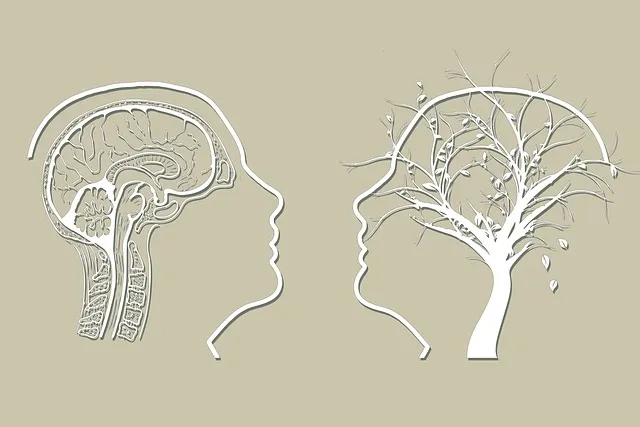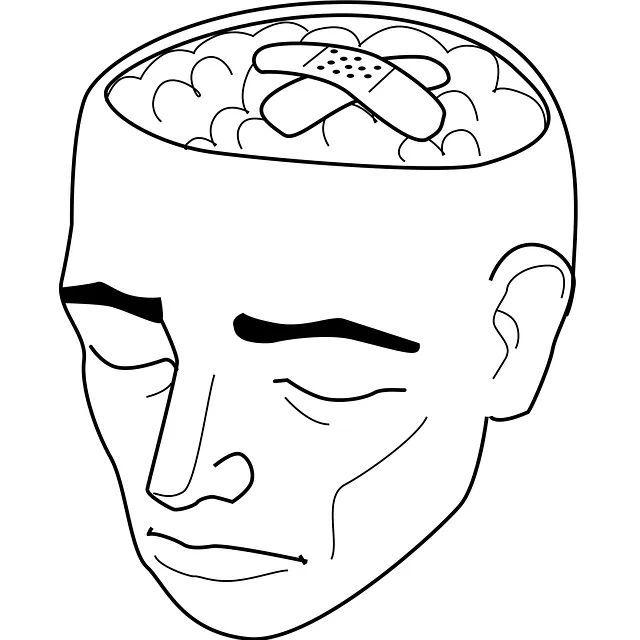Burnout among healthcare providers in Highlands Ranch is a growing concern, with significant impacts on individual well-being and organizational productivity. Kaiser Permanente addresses this through robust mental health services designed to support staff facing chronic stress, high workloads, and long hours. Proactive measures such as Inner Strength Development, Conflict Resolution Techniques, and Self-Awareness Exercises are adopted to enhance resilience, improve communication, and foster a supportive work environment. Strategies include open discussions, accessible counseling, regular breaks, promotion of work-life balance, recognition of achievements, and workshops on communication, empathy, and anxiety management. These initiatives not only prevent burnout but also increase job satisfaction and retention rates, ultimately fostering a healthier and more resilient workforce. Highlands Ranch Kaiser Permanente's holistic approach prioritizes resilience through comprehensive mental health services, including an easily accessible number for crisis intervention and community outreach programs.
Healthcare provider burnout is a growing concern, with significant implications for patient care. This article explores effective prevention strategies to combat this rising issue. We delve into the root causes and impact of burnout among healthcare professionals, emphasizing the need for supportive work environments. Integrating mental health services, such as those offered by Highlands Ranch Kaiser Permanente, is crucial in mitigating burnout. Additionally, we highlight self-care practices and resilience-building techniques for long-term sustainability.
- Understanding Burnout Among Healthcare Providers: Causes and Impact
- Creating a Supportive Work Environment: Strategies for Prevention
- Integrating Mental Health Services: A Key Component in Burnout Mitigation
- Building Resiliency and Self-Care Practices for Long-Term Sustainability
Understanding Burnout Among Healthcare Providers: Causes and Impact

Burnout among healthcare providers is a growing concern, impacting not only individual well-being but also patient care and organizational productivity. It’s characterized by emotional exhaustion, depersonalization, and reduced personal accomplishment, often stemming from prolonged exposure to stressful work environments. In Highlands Ranch, Kaiser Permanente offers robust mental health services designed to support staff facing these challenges. The root causes are multifaceted, ranging from heavy workloads, long hours, and high-stress situations to a lack of control over one’s work, inadequate rewards, and poor leadership. These factors can lead to chronic stress, which, if unaddressed, may result in physical and mental health issues.
The impact of burnout is profound. It reduces the quality of patient interactions, increases medical errors, and contributes to high turnover rates. Moreover, it affects not only healthcare providers but also their families and communities. To counter this trend, many organizations are adopting proactive measures focusing on Inner Strength Development, Conflict Resolution Techniques, and Self-Awareness Exercises. These strategies aim to enhance resilience, improve communication, and foster a supportive work environment, ultimately preventing burnout and ensuring healthcare professionals can thrive in their roles.
Creating a Supportive Work Environment: Strategies for Prevention

In creating a supportive work environment for healthcare providers, organizations like Highlands Ranch Kaiser Permanente play a pivotal role in preventing burnout. This involves implementing policies and practices that prioritize mental health services and employee well-being. One effective strategy is fostering an open culture where staff feel comfortable discussing their challenges and seeking support without fear of stigma. Providing accessible resources, such as on-site counseling or referral programs for mental health services, can significantly contribute to stress reduction. Additionally, encouraging regular breaks, promoting work-life balance, and recognizing employee achievements can enhance job satisfaction.
Social Skills Training and positive thinking exercises have proven beneficial in building resilience among healthcare providers. These initiatives can include workshops focusing on communication skills, empathy development, and coping mechanisms for managing anxiety relief. By integrating such programs into the work environment, organizations not only support individual well-being but also improve patient care by enhancing the overall team dynamics and morale.
Integrating Mental Health Services: A Key Component in Burnout Mitigation

Integrating mental health services is a pivotal strategy in preventing burnout among healthcare providers, addressing a critical gap often overlooked in their well-being. Organizations like Highlands Ranch Kaiser Permanente have recognized this need, offering comprehensive mental health support as a cornerstone of their employee care programs. The mental health services number, easily accessible to all staff, serves as a lifeline for those dealing with stress, anxiety, or burnout—common issues in the high-pressure healthcare environment.
By incorporating community outreach programs and confidence-boosting initiatives alongside traditional therapy options, these services aim to equip healthcare providers with effective stress reduction methods. Such an approach not only mitigates burnout but also enhances overall job satisfaction and retention rates, fostering a healthier and more resilient workforce.
Building Resiliency and Self-Care Practices for Long-Term Sustainability

In the ongoing pursuit of quality healthcare services, building resiliency among providers is paramount for long-term sustainability. Highlands Ranch Kaiser Permanente, recognizing this need, offers mental health services tailored to support staff well-being. These initiatives extend beyond acute crisis intervention (Crisis Intervention Guidance) and include community outreach program implementations that foster a supportive network. By integrating these strategies, healthcare providers can develop robust coping mechanisms, enhance their resilience, and mitigate the risks associated with burnout.
Self-care practices are integral to this equation. Encouraging regular participation in Stress Management Workshops helps professionals cultivate mindfulness and healthy stress responses. This proactive approach ensures that providers not only manage immediate pressures but also build long-lasting habits that promote mental wellness. In turn, these resilient practices enable healthcare workers to deliver consistent, compassionate care for their patients, reflecting the holistic commitment of organizations like Highlands Ranch Kaiser Permanente.
Healthcare provider burnout is a growing concern, but with proactive strategies, organizations like Highlands Ranch Kaiser Permanente can foster a resilient and supportive work environment. By integrating mental health services, encouraging self-care practices, and creating a culture that values support and well-being, healthcare providers can prevent burnout and deliver high-quality care for the long term. Remember, addressing mental health is not just beneficial but essential for the sustainability of any healthcare organization.






